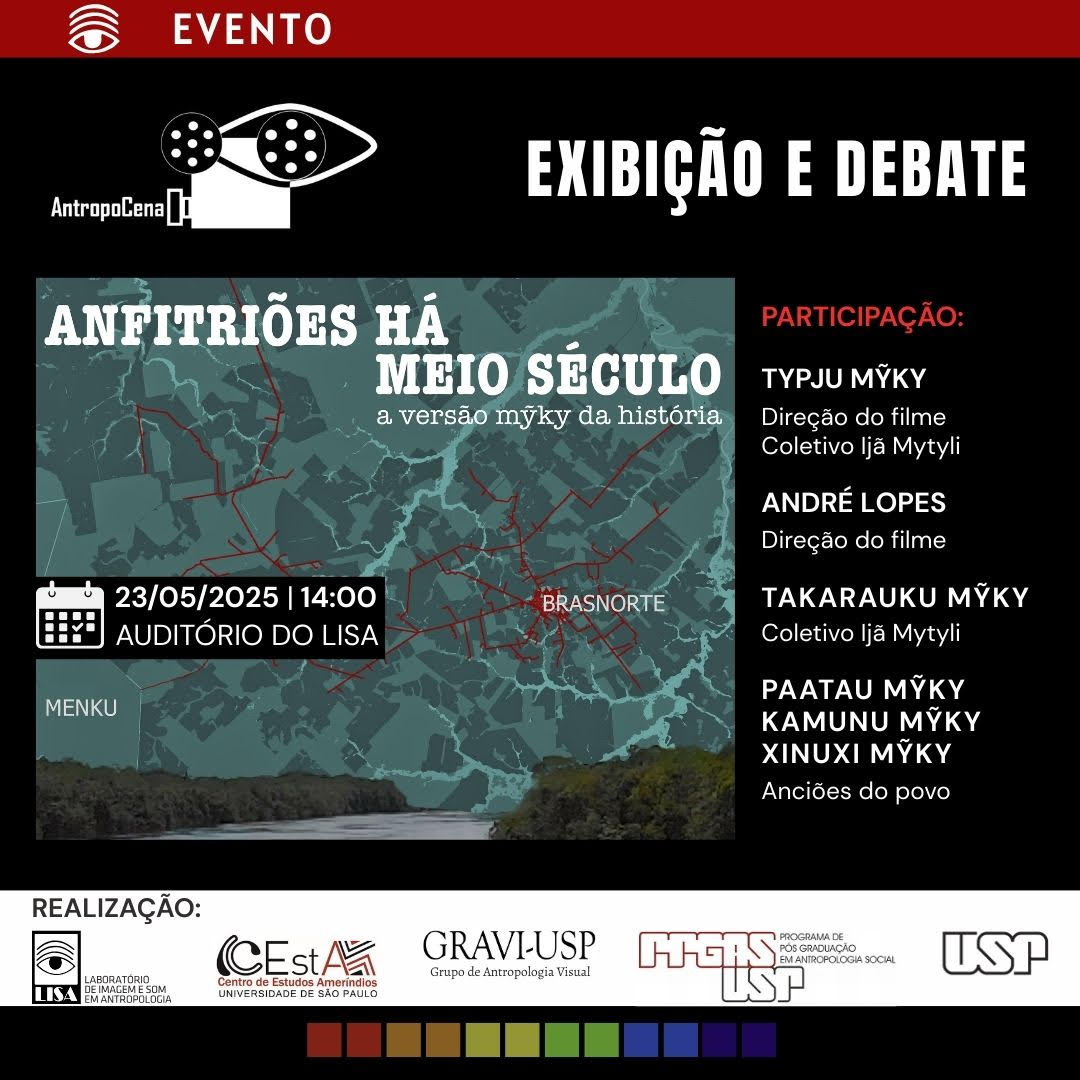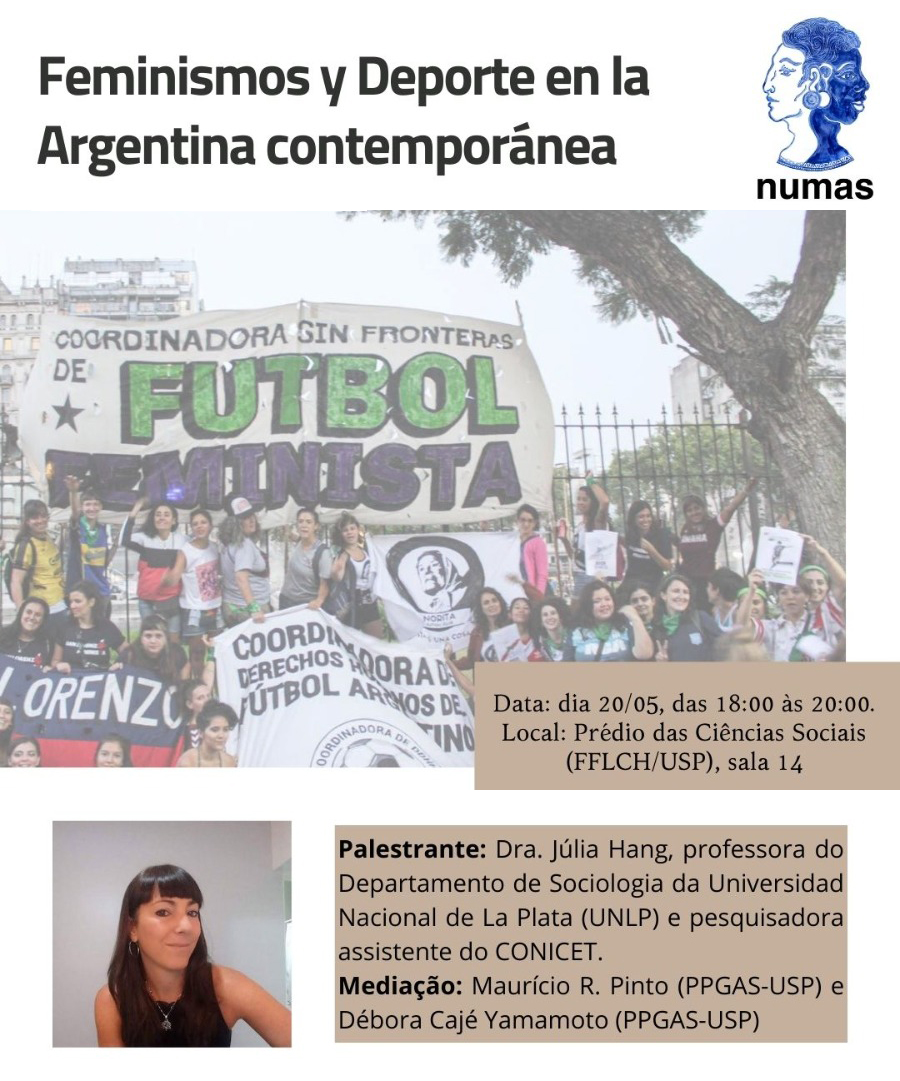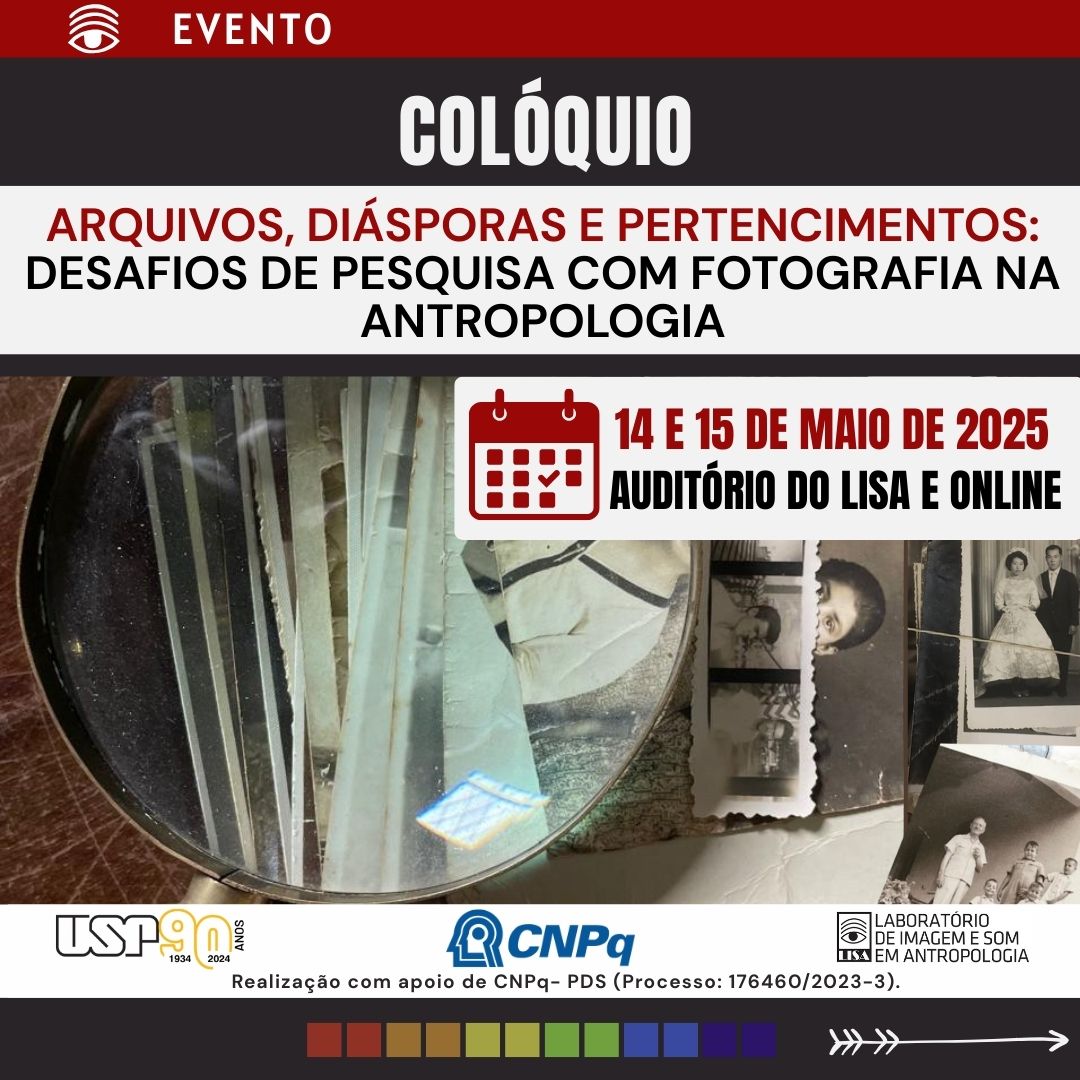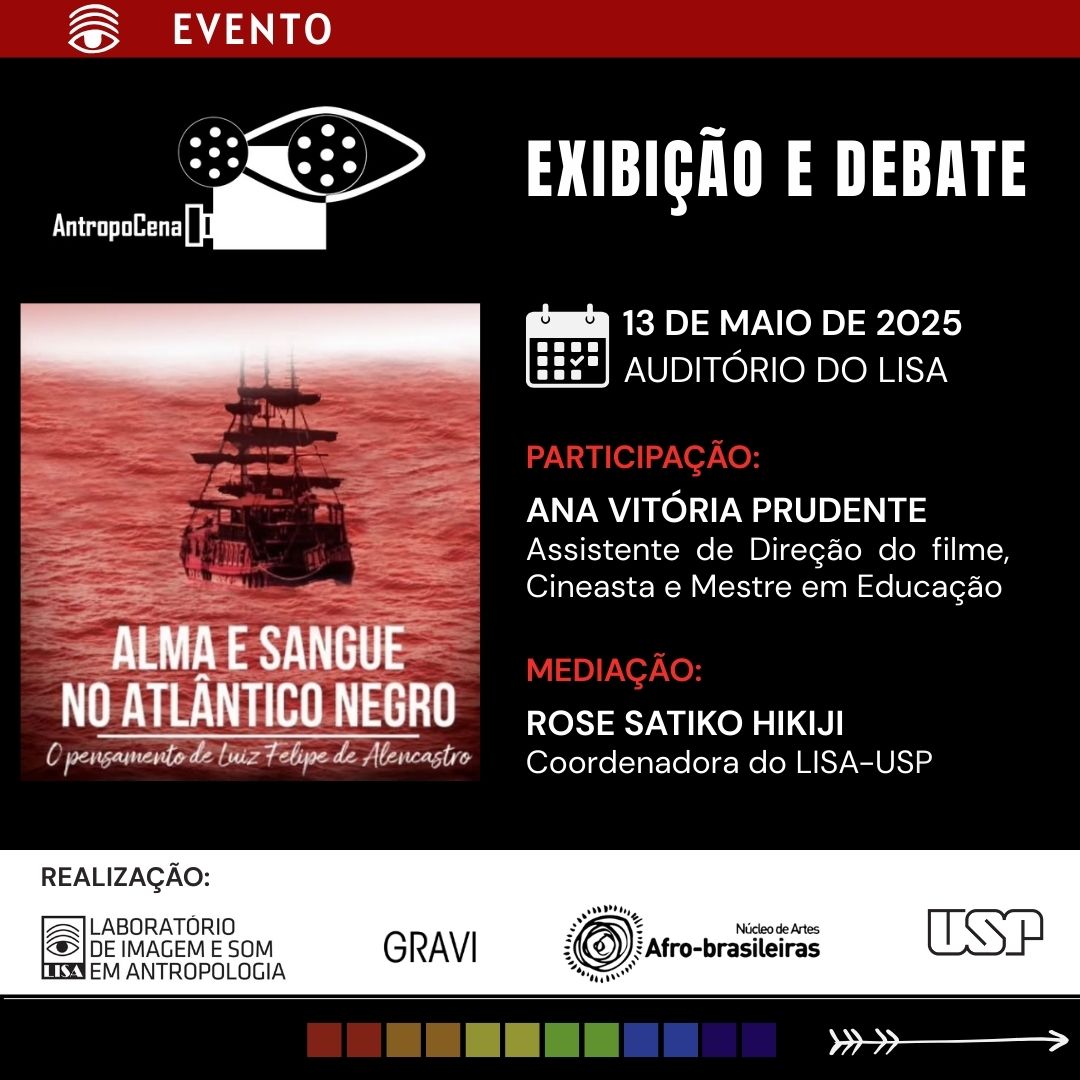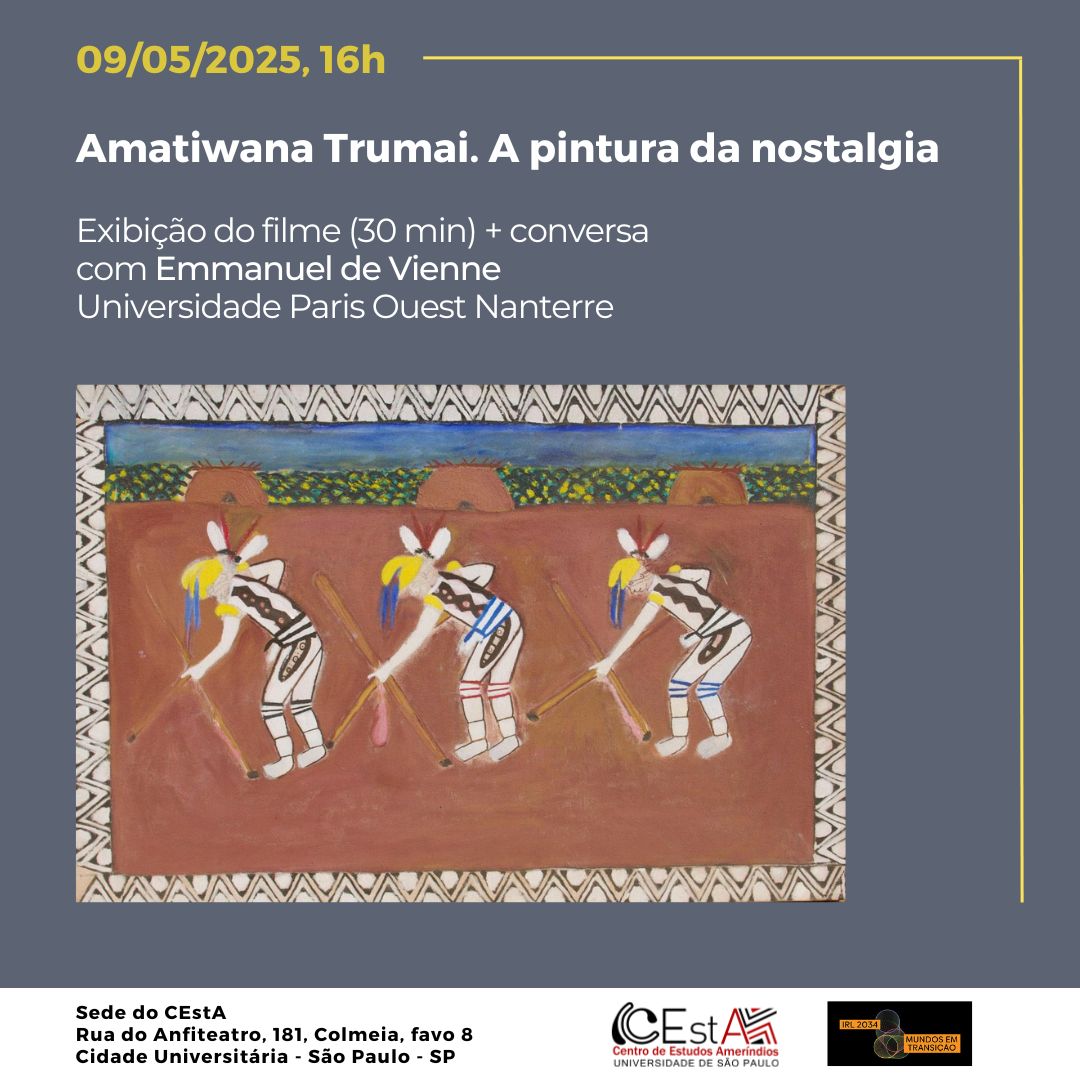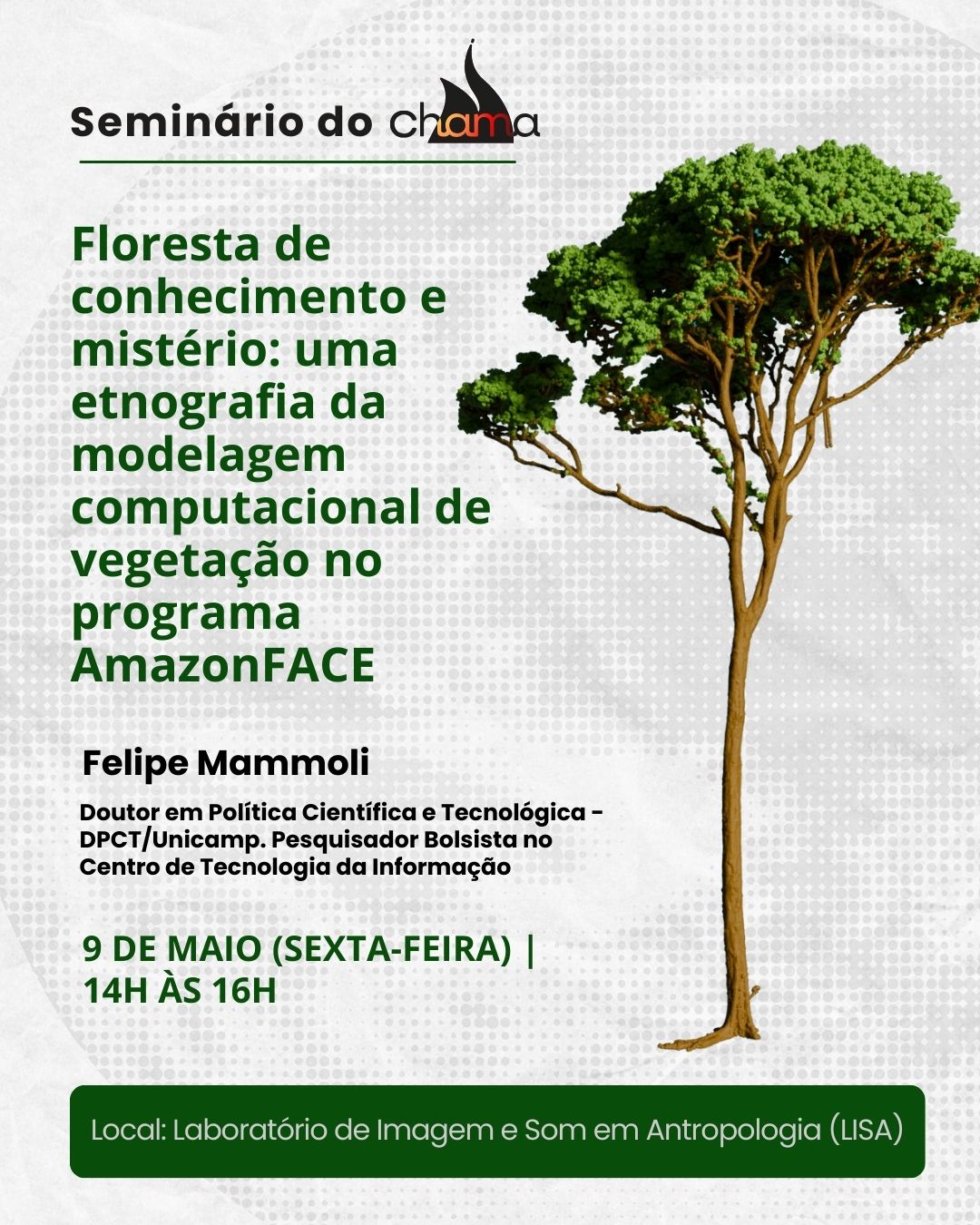History Events DA
The Encyclopedia of Anthropology will celebrate its 10th anniversary in 2025! This date calls for celebrations, but above all for assessments and reflections on the work carried out in order to plan future projects.
In this sense, we invite the public to the roundtable "Digital encyclopedias in action: crafts, technologies, collaborations", organized in partnership with the Ethnographic Laboratory of Technological and Digital Studies at USP.
The event will bring together scientific dissemination projects for an exchange of experiences on the production of digital encyclopedias, considering the challenges of collaborative management, editing and writing. In addition to EA, we will talk about the encyclopedias Indigenous Peoples in Brazil, from the Socioenvironmental Institute, and Bérose - encyclopédie internationale des histoires de l’anthropologie; and also about workshops on creating and editing Wikipedia entries, which have been held at the university, promoted by Wikimedia Brasil.
LISA, CEstA and GRAVI invite you to the screening of the film "Hosts half a century ago: the mỹky version of history" on May 23, 2025, at 2 pm, in the LISA auditorium.
TALK WITH PAULO MAIA
(UFMG School of Education and post-doctorate DA/USP)
Professor Julia Hang (Universidad Nacional de La Plata, Argentina)
Professor in the Department of Sociology at Universidad Nacional de La Plata (UNLP) and assistant researcher at CONICET. Moderation and debate: Mauricio Rodrigues Pinto and Débora Cajé Yamamoto
broadcast on the FFLCH YouTube channel
The lecture will address the intersections between gender, sports and politics, based on a reflection on how Argentine feminism has put pressure on the world of sports in recent years. The case of female fans, athletes, managers and club members who have organized themselves politically to change sports, thus also transforming Argentine society, will be presented.
From May 14 to 15, 2025, LISA-USP will host the colloquium "Archives, diasporas and belongings: research challenges with photography in anthropology", organized by Fabiana Bruno, a senior postdoctoral fellow at CNPq. The event will feature two panels and two research workshop sessions. The colloquium will be opened by Sylvia Caiuby Novaes (GRAVI-USP) and the first panel "Family archives, orphan archives and other emerging photography collections" will feature the participation of Paula Roush (Found Photo Foundation - London South Bank University); Clarice Ehlers Peixoto (INARRA-UERJ); Fabiene Gama (NAVISUAL – UFRGS) and Oscar Guarín Martinez (SENSOLAB - Pontifical Javeriana University) and will be mediated by Suely Kofes (PPGAS- IFCH, LA’GRIMA-Unicamp).
The second panel, “Archives, platforms and other artifacts: diasporas and image belongings,” will feature Cornelia Eckert and Ana Luiza Carvalho da Rocha (NAVISUAL and BIEV-UFRGS); Andrea Barbosa (VISURB-Unifesp); Mariana Petroni (LA’GRIMA-Unicamp; Unilab) and Edgar Teodoro da Cunha (NAIP-Unesp), mediated by Tatiana Lotierzo (postdoc USP). The panels will be coordinated by Fabiana Bruno (GRAVI-USP; LA’GRIMA- Unicamp).
The Laboratory of Image and Sound in Anthropology (LISA-USP), the Visual Anthropology Group (GRAVI-USP) and the Center for Afro-Brazilian Arts at USP invite you to the AntropoCena session of the film "Alma e Sangue no Atlântico Negro - O pensamento de Luiz Felipe de Alencastro", directed by Celso Prudente, professor at the School of Education at the University of São Paulo (FEUSP), with assistance from Ana Vitória Prudente, who will be present to discuss the work.
Ana Vitória is a PhD candidate in Education at USP, has a master's degree in Education from the Federal University of São Paulo (UNIFESP), a bachelor's degree in Performing Arts from the State University of Campinas (UNICAMP) and a degree in Arts from the University of Évora, in Portugal. She works on the educational programs of the São Paulo State Symphony Orchestra (OSESP) and the Campos do Jordão Festival. She is a curatorial and production assistant for the International Black Cinema Festival (MICINE) and a production assistant for the Quilombo Academia Program on Rádio USP 93.7 FM.
Amatiwana Trumai. The painting of nostalgia.
Film screening (30 min) + conversation with Emmanuel de Vienne (University Paris Ouest Nanterre)
What kind of Amazon emerges from the contemporary effort of computational modeling to try to predict the effects that climate change will have on the forest? In his research that will be presented this Friday, May 9, Felipe Mammoli, PhD in Science and Technology Policy - DPCT/Unicamp, starts from the Anthropology of Science and Science and Technology Studies (STS) to discuss how computational and ecological issues mix in the practices of knowledge production about the future of the Amazon rainforest. Based on an ethnography at the Computational Modeling Laboratory of the international research program on the Amazon, AmazônFACE, Mammoli proposes that there is a new Amazon rainforest taking shape, one that is not made up of living and non-living beings and is not located in South America, but rather a disaggregated forest, composed of digital data and distributed globally in several global environmental data systems. The event will take place at the Laboratory of Image and Sound in Anthropology (LISA).
The Laboratory of Image and Sound in Anthropology (LISA-USP) will host on April 29, 2025, at 2:30 p.m., the lecture "Ruins of photography: migrations of family archives and their ecosystems of belonging" by researcher Dr. Fabiana Bruno, a postdoctoral fellow at the Department of Anthropology at USP supervised by Professor Dr. Sylvia Caiuby Novaes.
The lecture will address the context and policies of “emerging collections” formed with abandoned or discarded photos, in particular, vernacular family photographs unlinked from personal albums. The starting point will be the presentation of an overview of the stories of three “emerging collections” researched: Arab Image Foundation (AIF), Lebanon; Found Photo Foundation, England; and ACHO – Arquivo Coleção de Histórias Ordinárias, Brazil.
The topic of indigenous school education has received renewed anthropological interest over the past twenty-five years, in line with changes in legislation resulting from the 1998 Constitution and the indigenous movement demanding schooling and access to higher education and postgraduate studies. Recent ethnographies of indigenous schools have revealed the articulation of everyday school life with several other spheres of social life (shamanism, corporality, notion of person, gender, social and political organization, among others). Despite the difficulties in managing indigenous schools in Brazil, several experiences have managed to transform their daily lives in such a way as to make room for non-hegemonic sources of knowledge, non-human teachers and alternative processes of teaching and learning. I suggest that the grounds of these schools are privileged spaces for the emergence of a more equitable inter-epistemic dialogue, since they are anchored in the daily life of the villages, with their own dynamics and temporalities.



